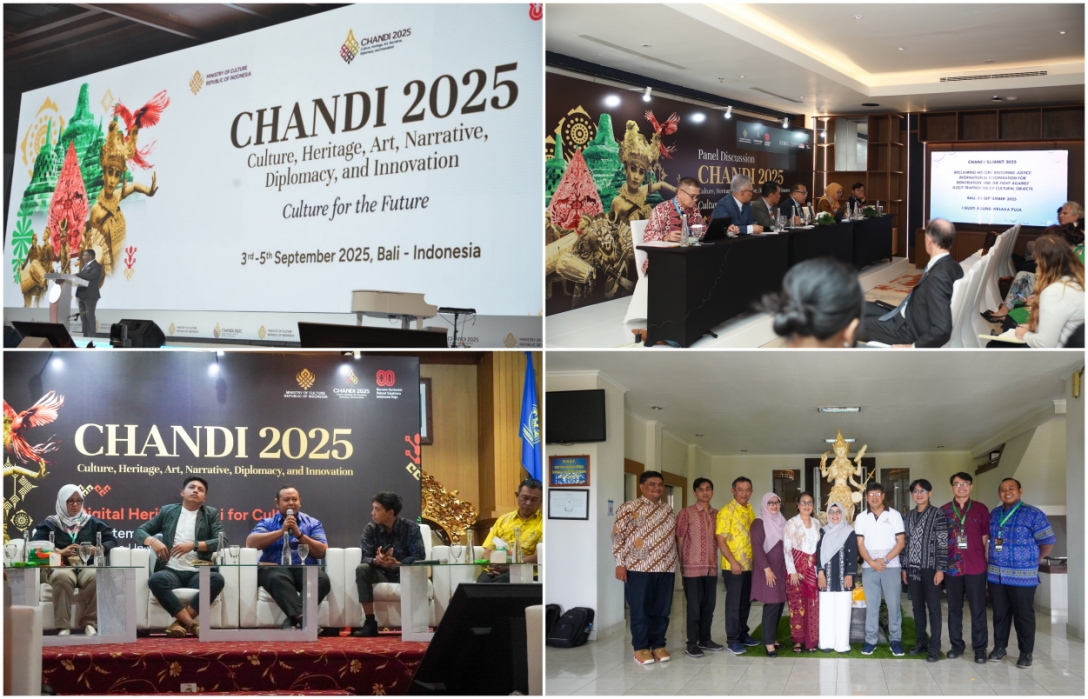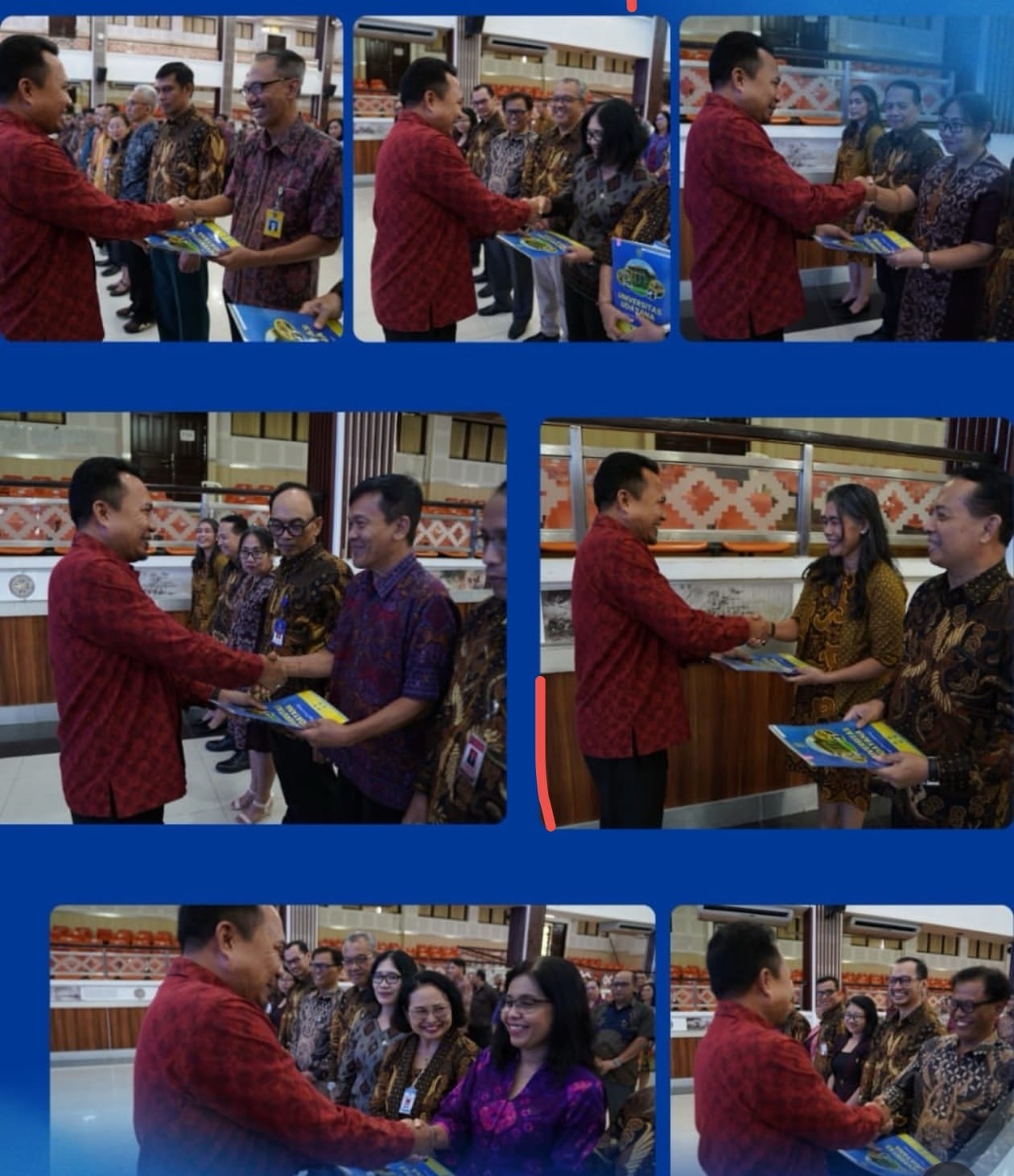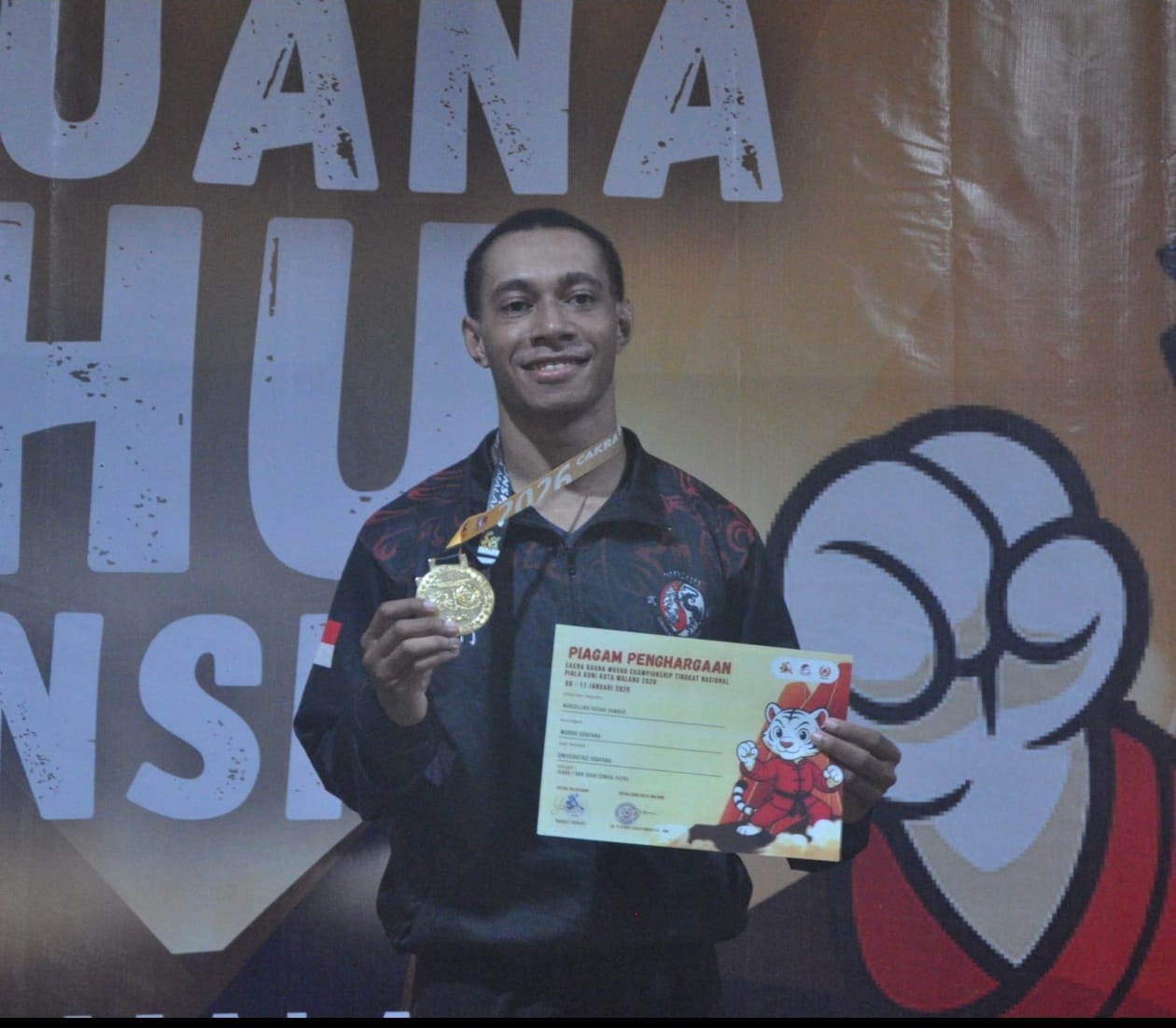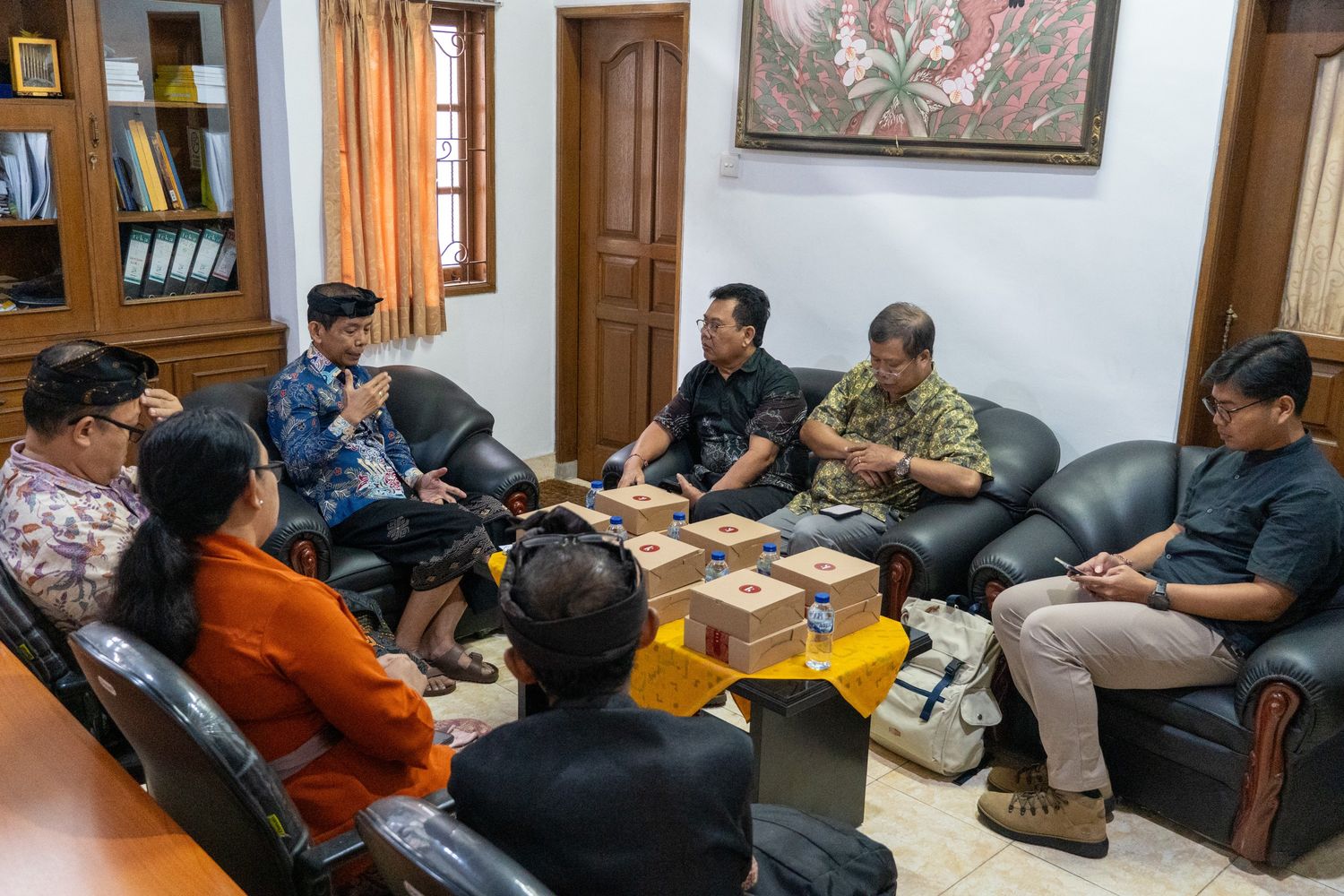Presenting the Digitalization of Cultural Heritage with AI, the Faculty of Humanities of Udayana University Participates in the 2025 CHANDI Summit
The Ministry of Culture of the Republic of Indonesia will host the three-day Culture, Heritage, Arts, Narratives, Diplomacy and Innovation (CHANDI) 2025, from September 3-5, 2025, in Bali. This global forum provides a unique platform for dialogue, collaboration, and innovation in the cultural sector, bringing together world leaders, policymakers, academics, artists, and cultural practitioners. With the theme "Culture for the Future," the conference emphasizes the role of culture as a unifying force that bridges local wisdom with global priorities, addressing the complexities of the 21st century through sustainable development, peacebuilding, and the celebration of diversity. The event was attended by ministers and policymakers from friendly countries in the field of culture, as well as other relevant stakeholders such as international organizations, scholars, academics, artists, and cultural practitioners.
The three-day event will involve lecturers from the Faculty of Cultural Sciences, Udayana University, as panelists, note-takers, and moderators. On the first day of activities, September 3, 2025, FIB Unud sent three representatives from the Bachelor of English Literature, I Made Sena Darmasetiyawan, S.S., M.Hum, Ph.D., Galuh Febri Putra, S.Pd., M.A., and Putu Wahyu Widiatmika, S.S., M.Hum., as note takers for the activity. The agenda on the first day was divided into several sessions. One of the sessions was a panel discussion session. The first panel discussion session was entitled "Reclaiming History, Restoring Justice: International Cooperation for Repatriation and the Fight Against Illicit Trafficking of Cultural Objects". This discussion focused on international efforts to restore cultural heritage and eradicate the illicit trade in cultural objects. This discussion presented two panelists, one of them was Prof. I Ketut Ardhana, M.A., Ph.D., who is currently a Professor of Asian History, History Science Study Program, FIB Unud.
On the final day (September 5, 2025), the CHANDI Summit 2025 agenda included a seminar titled "Digital Heritage and AI for the Future." The seminar was held in the Postgraduate Hall, 3rd Floor, Postgraduate Building, Sudirman Campus, Udayana University. The seminar featured keynote speakers who presented various perspectives on Digital Heritage and AI for the Future. The seminar was moderated by Galuh Febri Putra, S.Pd., M.A., a lecturer in the Bachelor of English Literature, Faculty of Humanities, Udayana University. Six speakers presented. Of the six speakers, three were representatives from Faculty of Humaniteis, Udayana University. They were Kristiawan, S.S., M.A., a lecturer in the Archaeology Study Program, Udayana University; Ida Bagus Made Ari Segara, S.S., M.Hum., a palm leaf practitioner and alumnus of Udayana University; and Ida Bagus Anom Wisnu Pujana, a representative from the Palm Leaf Unit, Faculty of Humanities, Udayana University.
The event was opened with a brief remark from Dr. Restu Gunawan, M.Hum., the Deputy Minister of Culture, Directorate General of Cultural and Tradition Protection, Ministry of Culture of the Republic of Indonesia. He expressed his gratitude to Udayana University for making this event possible. Through the chosen theme, Director General Restu believes this seminar will generate ideas, concepts, and paradigms related to culture. The next agenda was presentations from two keynote speakers, the Deputy Minister of Culture of the Republic of Indonesia, Giring Ganesha Djumaryo and the Chair of the UNESCO Penang Arts Council, Joe Sidek. In his presentation, Giring Ganesha Djumaryo highlighted the issue of artificial intelligence (AI) in arts and cultural innovation. Meanwhile, Joe Sidek talked about the George Town Festival which he produced between 2010 and 2018, and its relationship to event management with AI.
The panel discussion featured six speakers, including Lita Rahmiati, Head of the Regional Cultural Preservation Center VIII for Banten and Jakarta; Laksmi DeNeefe Suardana, Ambassador of the Ubud Writers and Readers Festival; Ida Bagus Made Ari Segara and Ida Bagus Anom Wisnu Pujana, practitioners of palm leaf manuscripts from Udayana University; I Putu Ardiyasa, a lecturer in traditional dance and a member of the deaf community; and Kristiawan, a lecturer in the Archaeology Study Program at the Faculty of Humanities, Udayana University. The first speaker was Lita Rahmiati. She discussed manuscripts in the Banten region and their current condition. In her presentation, she also explained the role of AI in assisting the digitization, preservation, and maintenance of these manuscripts. Meanwhile, Laksmi DeNeefe Suardana, the second speaker, expressed her joy and enthusiasm in sharing her experiences with AI practices. For her, technology bridges culture and modernization.
The third speaker, I Putu Ardiyasa, discussed the adaptation of ancient performing arts texts in manuscript form into artistic practice. In his presentation, transforming traditional texts into performing arts is one form of preserving intangible cultural heritage, ensuring its continued existence in society. The fourth speaker, Ida Bagus Made Ari Segara, presented on "Digitizing Lontar Manuscripts" and its relationship to preserving Balinese culture in the digital age. He outlined three reasons why lontar manuscripts need to be digitally archived: preservation, accessibility, and the integration of culture and technology. However, challenges remain, such as limited access and facilities, as well as the damaged, weathered, and illegible condition of lontars. This presentation was followed by the fifth speaker, Ida Bagus Anom Wisnu Pujana, who further explained the Lontar Unit and its role in preserving lontar in Bali.
The final speaker at this event was Kristiawan, S.S., M.A. He delivered a presentation entitled "Digitization of Cultural Heritage Data in East Nusa Tenggara Initial Stage Towards the Virtual Museum of Austronesian Culture in East Nusa Tenggara." In the presentation, he discussed the threats to the preservation of cultural heritage in several traditional villages in Sumba due to natural disasters that have destroyed several assets. To prevent this, digitization into a virtual museum is necessary. He also emphasized that preserving cultural values is crucial for technological developments that require millennial creativity. This shows that the preservation of digital cultural heritage requires AI and multimedia to be accessible through a virtual museum. The event concluded with a question-and-answer session and closing remarks. With the conclusion of this event, the core agenda of CHANDI 2025 has been completed. It is certainly hoped that this activity can continue and have a positive impact in the future.




UDAYANA UNIVERSITY